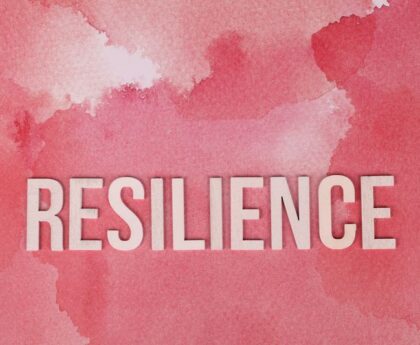Manson Family Killer Leslie Van Houten To Be Released Without Appeal From Newsom
Introduction
In a decision that has reignited debates about justice and rehabilitation, California Governor Gavin Newsom has chosen not to appeal a court ruling granting parole to Leslie Van Houten, a former member of the infamous Manson Family cult. Van Houten was convicted for her involvement in the brutal killings of Leno and Rosemary LaBianca in 1969. This development raises important questions about the role of medical decision-making, second opinions, and patient advocacy in the context of criminal justice.
The Manson Murders and Van Houten’s Role
In the late 1960s, the Manson Family, led by the charismatic Charles Manson, committed a series of heinous murders that shocked the nation and left an indelible mark on American history. Van Houten, at the age of 19, became one of Manson’s followers and actively participated in the LaBianca murders. She was found guilty of stabbing Rosemary LaBianca multiple times and holding her down while others carried out further acts of violence.
The Evolution of Van Houten
Over the years, Van Houten has shown remorse for her actions and has undergone substantial personal growth. She has pursued education, engaged in therapy, and earned multiple degrees while in prison. Propelled by a sincere desire for redemption, Van Houten has become a model inmate, demonstrating significant efforts toward rehabilitation.
The Medical Decision-Making Process
The recent court ruling granting Van Houten parole was heavily influenced by her portrayal as a changed individual and the recognition of her progress in addressing her past deeds. One contributing factor to this development was the involvement of medical professionals who diagnosed Van Houten’s transformation as genuine.
In the realm of healthcare, second opinions are often sought to confirm or challenge diagnoses, ensuring the best possible patient care. Similarly, in the context of parole decisions, multiple perspectives are crucial to balancing rehabilitation efforts with public safety concerns. In this case, the medical professionals who evaluated Van Houten’s progress provided an essential second opinion, attesting to her potential for successful reintegration into society.
Philosophical Reflections: Punishment, Rehabilitation, and Justice
The decision not to appeal Van Houten’s parole raises profound philosophical questions about the purpose of punishment, the potential for rehabilitation, and the concept of justice itself. Should individuals who have committed heinous crimes be condemned indefinitely, or should they be given an opportunity to transform and reintegrate into society?
Some argue that punishment should serve as a deterrent and retribution for crimes committed, dismissing the possibility of true redemption. Others, however, contend that the justice system should not be centered solely on punishment, but also on rehabilitation and the potential for personal transformation.
Advocates for Van Houten’s release argue that by granting her parole, society acknowledges her efforts to change and seeks to reconcile justice with the hope for individual transformation. They believe that denying Van Houten the opportunity to reintegrate into society would undermine the principles of restorative justice and perpetuate a system focused solely on punishment.
Editorial: The Balancing Act
Governor Newsom’s decision not to appeal Van Houten’s parole ruling is a difficult one, as it requires striking a delicate balance between ensuring public safety and providing opportunities for rehabilitation. While it is crucial to respect the decisions of medical professionals and their expertise in evaluating an inmate’s potential for change, it is equally important to consider the nature and gravity of the crimes committed.
As society grapples with the complexities of criminal justice, it is essential to create a system that permits meaningful second opinions and patient advocacy. Only through a thorough evaluation of an inmate’s progress and transformation can a comprehensive understanding of their potential for reintegration be reached.
Conclusion: A Glimpse Into the Future
The case of Leslie Van Houten raises profound questions about the possibilities for redemption and rehabilitation within the criminal justice system. While her release has sparked controversy and ignited debates, it serves as a reminder that individuals are capable of change, growth, and the pursuit of personal redemption.
Moving forward, it is crucial to balance the principles of justice, punishment, and rehabilitation. By incorporating thorough medical decision-making processes, seeking second opinions, and advocating on behalf of patients, the criminal justice system can embrace a more nuanced and comprehensive approach to addressing crime, acknowledging the potential for transformation and growth.

<< photo by Katia Miasoed >>
The image is for illustrative purposes only and does not depict the actual situation.
You might want to read !
- A Rift in the Right: Exploring the Feud Between Marjorie Taylor Greene and Lauren Boebert
- “Freedom Caucus Faces Communication Crisis with Marjorie Taylor Greene”
- Tracy Chapman Reflects on Luke Combs’ “Fast Car” Remake: A Clash of Artistic Intention and Cultural Appropriation
- Diamondbacks Receive Positive Update on Corbin Carroll’s Injury: A Potential Bullet Dodged
- FDA Expands Access to Alzheimer’s Drug Leqembi: A Step towards Better Treatment for Patients
- The FDA’s Decision: From Novelty to Tradition in Alzheimer’s Disease Treatment
- “Addressing Mental Health: Pete Davidson’s Journey to Healing”
- “Medical Ghostbusters: Cracking the Enigma of Maya’s Illness”
- “Take Care of Maya: An Intimate Exploration of Family’s Trials”
- Battle at the Doorstep: The Impending UPS Driver Strike that Could Disrupt Deliveries




